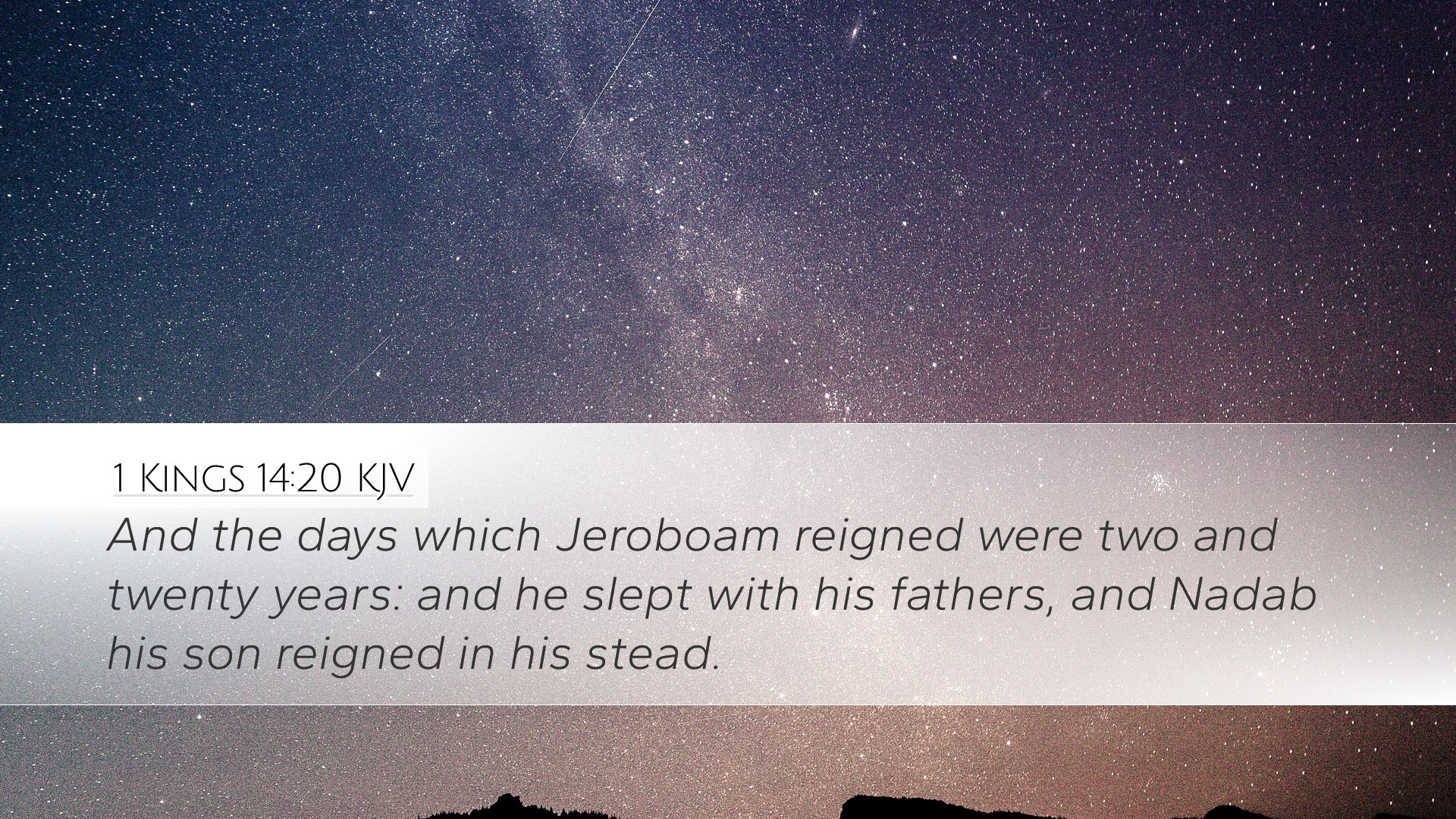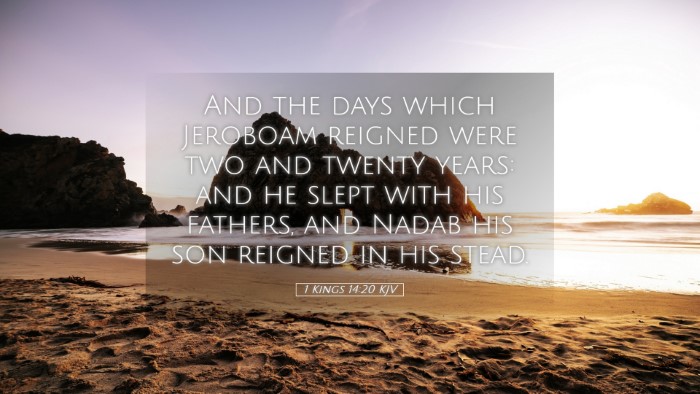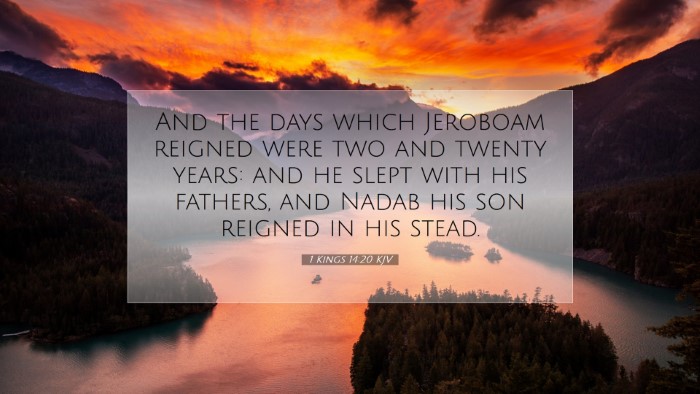Commentary on 1 Kings 14:20
“And the days which Jeroboam reigned were two and twenty years: and he slept with his fathers, and Nadab his son reigned in his stead.”
Context and Significance
The verse marks a pivotal transition in the reign of Jeroboam, outlining the length of his rule over Israel and the succession of his son, Nadab. Understanding this passage requires a look into the broader narrative of the kings of Israel, the consequences of Jeroboam's sin, and the theological implications of reigns concerning faithfulness to God.
Historical Overview
-
Reign of Jeroboam: Jeroboam ascended to the throne after the division of the kingdom, establishing a dynasty that would be marked by apostasy. His reign of twenty-two years (c. 931-910 B.C.) set a precedent for the kings that followed.
-
Succession: The passing of Jeroboam and the ascension of his son Nadab illustrates the continuation of his policies and the instability of the northern kingdom's monarchy.
Theological Insights
-
Judgment of God: Commentators like Matthew Henry emphasize that the length of Jeroboam's reign was not solely a sign of divine favor; rather, it highlights God's patience amidst his unfaithfulness.
-
Impact of Leadership: Albert Barnes notes that the failure of Jeroboam’s rule came from his decision to promote idolatry, which led to a detrimental spiritual climate in Israel—setting a precedent that many kings would follow.
Life of Jeroboam
Jeroboam’s legacy, as analyzed by Adam Clarke, reflects the complexities of political leadership intertwined with spiritual disobedience. As a leader chosen by God to fulfill a divine plan — the division of Israel — Jeroboam nonetheless chose a path that led to both personal and communal decay.
His establishment of golden calves (1 Kings 12:28) as an alternative means of worship shows an acute disconnection from true worship, and as such, his reign becomes a cautionary tale for future leaders.
Relevance Today
For contemporary pastors and theologians, this passage serves as a critical reminder of the importance of fidelity in leadership. The choices made by Jeroboam highlight the impact of leadership—good or bad—on the spiritual trajectory of a community.
Furthermore, as Matthew Henry eloquently states, “Men sleep with their fathers; but their sins, live on.” This statement echoes the reality that ungodliness can bear fruit long after a ruler’s reign has ended, making the pursuit of holiness in leadership essential for future generations.
Lessons on Succession
-
Principle of Succession: The verse highlights the biblical principle that the legacy of leadership is often transferred to the next generation. Nadab's ascension would carry forward the consequences of his father’s reign.
-
Responsibility of Leaders: Aspiring leaders must heed this as a call for accountability, understanding that their actions can shape the faith and morality of their successors.
Conclusion
In summary, 1 Kings 14:20 is not merely a record of historical fact; it is rich with theological and practical implications for both ancient and modern leaders. The life of Jeroboam exemplifies a profound lesson: that every king, regardless of their initial favor with God, will ultimately be judged by their faithfulness to Him. As we reflect on this passage, may it inspire us to uphold righteousness in our leadership, ensuring that our legacy honors God and guides future generations toward Him.


